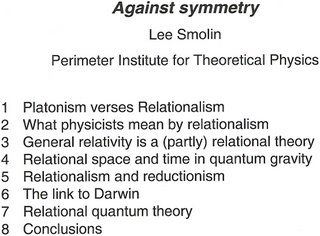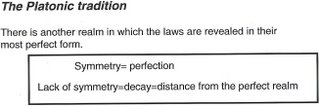Mathematics, rightly viewed, possesses not only truth, but supreme beautya beauty cold and austere, like that of sculpture, without appeal to any part of our weaker nature, without the gorgeous trappings of painting or music, yet sublimely pure, and capable of a stern perfection such as only the greatest art can show. The true spirit of delight, the exaltation, the sense of being more than Man, which is the touchstone of the highest excellence, is to be found in mathematics as surely as in poetry.--BERTRAND RUSSELL, Study of Mathematics

The "Talking Pictures" Projection Wagon-
In the 1920's about the only entertainment that came to the rural community of Leakey, Texas was the traveling tent shows. This form of family entertainment would come to the canyon about once a year to the delight of all. Everyone looked forward to the horse drawn wagons that brought the much anticipated entertainment to town. In later years the horses were replaced by the Model T Fords but this form of transportation did not deter the excitement.
See:"
Leakey's Last Picture Show" by Linda Kirkpatrick
Vintage photos courtesy Lloyd & Jackie Shultz
It is important sometimes to hone in on exactly what sets the mind to have it exemplify itself to a standard that bespeaks to the idealizations that can come forward from a most historical sense. It is in this way that while one can envision where the technological views have replaced the spoken word in movie pictures, we can see the theatre above as an emblazoned realization of what changes has been brought to society and what may have been lost in some peoples eyes.
 This is a photograph of author and philosopher Robert M. Pirsigtaken by Ian Glendinning on the eve of the Liverpool conference of 7th July 2005.
This is a photograph of author and philosopher Robert M. Pirsigtaken by Ian Glendinning on the eve of the Liverpool conference of 7th July 2005.
What is in mind is a sort of Chautauqua...that's the only name I can think of for it...like the traveling tent-show Chautauquas that used to move across America, this America, the one that we are now in, an old-time series of popular talks intended to edify and entertain, improve the mind and bring culture and enlightenment to the ears and thoughts of the hearer. The Chautauquas were pushed aside by faster-paced radio, movies and TV, and it seems to me the change was not entirely an improvement. Perhaps because of these changes the stream of national consciousness moves faster now, and is broader, but it seems to run less deep. The old channels cannot contain it and in its search for new ones there seems to be growing havoc and destruction along its banks. In this Chautauqua I would like not to cut any new channels of consciousness but simply dig deeper into old ones that have become silted in with the debris of thoughts grown stale and platitudes too often repeated.
Zen and the Art of Motorcycle Maintenance Part 1 Chapter 1.
(Bold added by me for emphasis)
I wanted to take the conversation and book presented by Phil and immortalize it in a way by laying it out for examination. Regardless of my opinions and viewpoint, the world goes on and the written work of Robert Pirsig persists as a "object of the material." In the beginning, no matter the choice to illuminate the ideal, it has been transgressed in a way by giving the symbols of language to a discerning mind and verily brought to that same material world for examination. How ever frustrating this may seem for Pirsig, it is a fact of light that any after word will reveal more then what was first understood. Reflection has this way about it in the historical revelation, of how the times are changing. Things dying and becoming new. The moon a reflection of the first light.

The conclusion of the whole matter is just this,—that until a man knows the truth, and the manner of adapting the truth to the natures of other men, he cannot be a good orator; also, that the living is better than the written word, and that the principles of justice and truth when delivered by word of mouth are the legitimate offspring of a man’s own bosom, and their lawful descendants take up their abode in others. Such an orator as he is who is possessed of them, you and I would fain become. And to all composers in the world, poets, orators, legislators, we hereby announce that if their compositions are based upon these principles, then they are not only poets, orators, legislators, but philosophers.
Plato, The Dialogues of Plato, vol. 1 [387 AD] PHAEDRUS.
***
IN announcing himself in the written work with regards to the IQ given in signalling the identity of the character Phaedrus, it was important that one see this in a way that excuses are not made, and allowances not be set forth for what was to become the lone wolf. John Nash too, had his excursions into the bizarre as well, was to know that in the "end of his synopsized life," a certain contention that he had to deal with in this inflection of his disease, as part of his make-up. Was to deal with, while now, he continues to move on with his life. He is aware of the intrusions that personage can do as it infringes from the periphery, as ghosts of his mind too.
To me in reading John Nash's biography in historical movie drama, was to bring attention to what cannot be condoned by exception, when allowing genius to display it's talents, while causing a disruption not only to themself, but to see the elite make allowances for these transgressions. Pattern seeking is not to be be rifting the idea, that we cannot look into the very structure of reality and see what makes it tick? Just that we do not get lost in travelling the journey.
Practising escapism was to deny oneself the responsibility of becoming whole. To allow for genius, as an exception, would mean to not recognize that the intellect is part and parcel of the greater whole of the person called Robert Pirsig or John Nash.
Who of us shall placate failure as a sure sign of genius and allow the student 's failure as acceptable? This was a transgression seen from another perspective and as afterthought realized in a mistaken perception "about broadcasting Phaedrus" as some towering voice from the past as relevant in todays world, because of the location and time in history?
***

Click on link
Against symmetry (Paris, June 06)
While I may use the alias of Plato and look at the substance of his written work, it is also from that view point such a discussion had to take place within the context of the written prose about two people in this Socratic method, that while worlds in the dialogues existed in speech, no such persons were there at the time. Yet, such thoughts are transmitted and established in that historical sense, and moved forward to this time.
 Against symmetry (Paris, June 06)
Against symmetry (Paris, June 06)
To me there are two lines of thought that are being established in science that in Lee Smolin's case is used to move away from the thinking of the idea of Plato's symmetry by example. To see such trademarks inherent in our leaders of science is too wonder how they to, have immortalize the figures of speech, while trying hard to portray the point of view that has been established in thought. These signatures have gone from Heisenberg to Hooft. And the list of names who have embedded this move to science, as a education tool, that is always inherent in the process. That reference is continually made.
IN this sense I do not feel I had done anything wrong other then to ignite the idealization I have about what that sun means to me, as the first light in a psychological sense. Where it resides in people. How divorce we can be from it while going on about our daily duties existing in the world. That there also resides this "experience about our beginnings." To ignite what the word of geometrics has done in the abstract sense. How much closer to the reality such a architecture is revealed in Nature's way, to know that we had pointed our observations back inside, to reveal the world outside.
***
See Also:
Stargazers and Hill Climbers
Evolutionary Game Theory
Inside the Mathematical Universe































